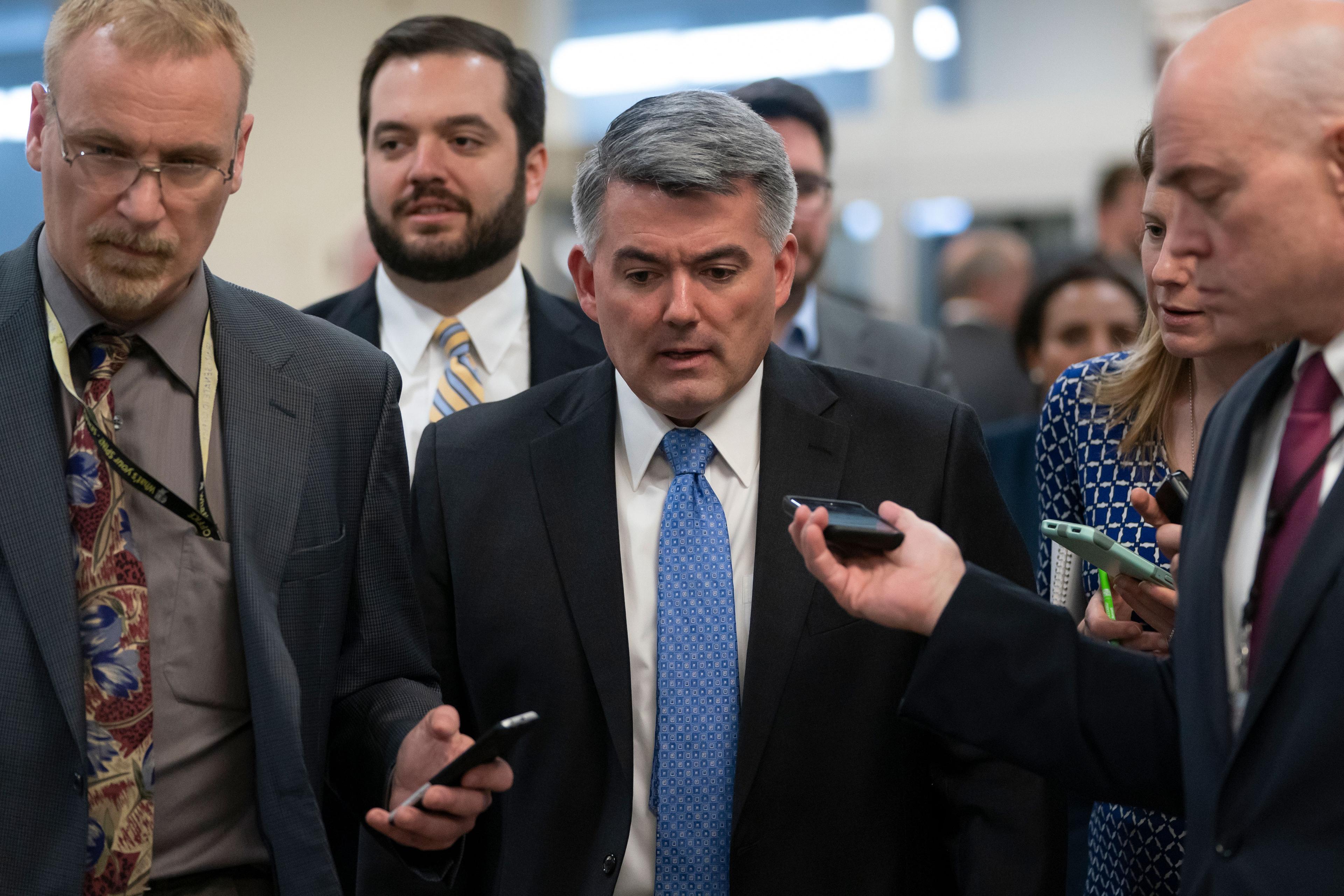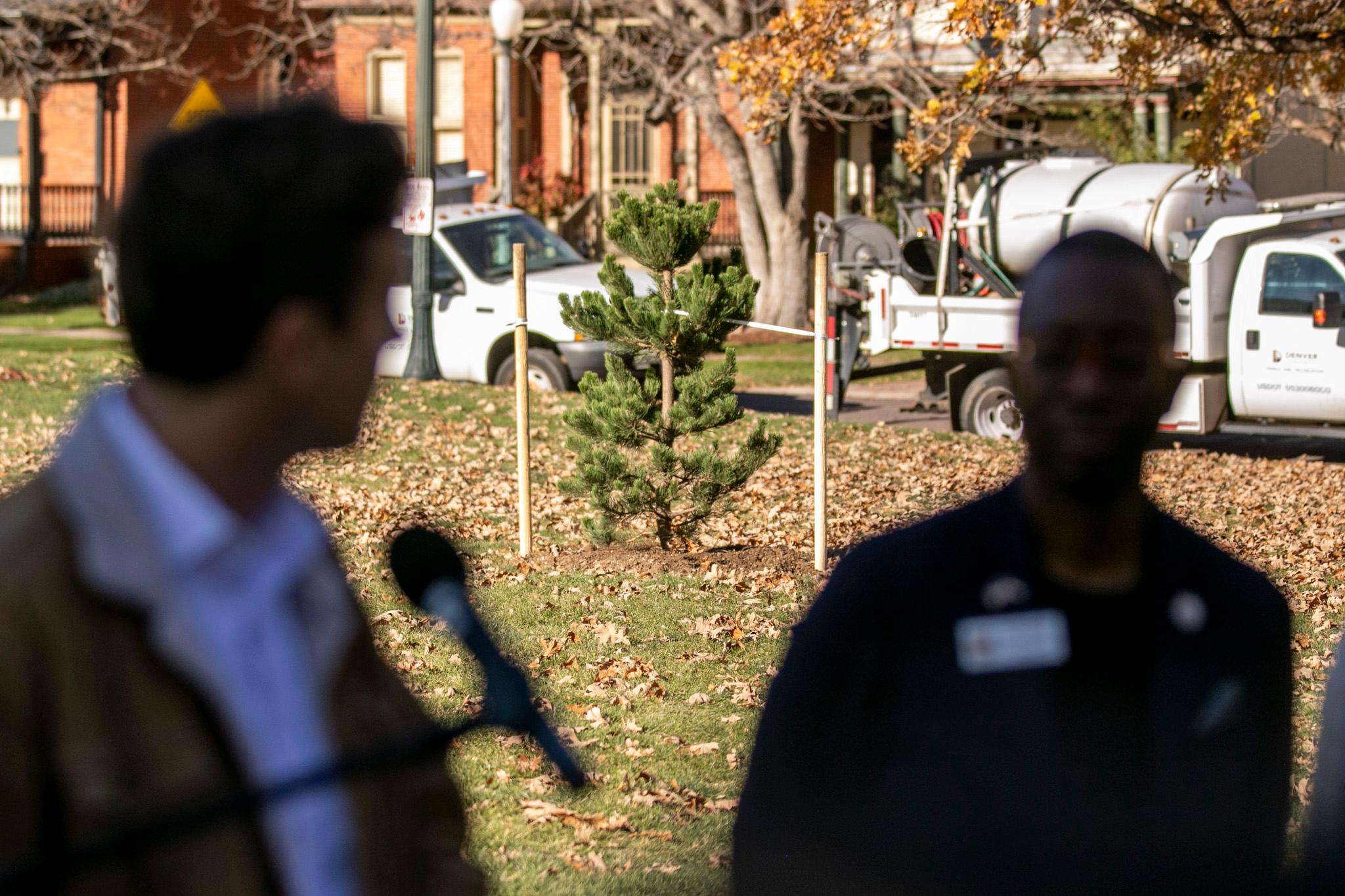

The 2020 election — still a year and a half away — has already cast a long shadow over every action taken by Republican Sen. Cory Gardner. He’s one of only two GOP senators up for reelection in a state Hillary Clinton won. Some have expected that fact to drive Gardner to the middle, but in a couple of recent high-profile moves, he has instead stuck with President Donald Trump.
When the Senate voted to disapprove of President Trump’s National Emergency Declaration to fund a border wall, many in Colorado waited to see just what Gardner would do. Gardner had been vocal about his support for funding Trump’s border wall, but he criticized the idea of Trump circumventing Congress to pay for it.
“I don’t think [President Trump] should do anything without Congress’ approval. I think it’s important for Congress to have the appropriate oversight,” Gardner told CPR’s Colorado Matters in January.
In a show of support for Trump’s actions, Gardner ultimately voted to uphold the declaration, deciding the president did have the legal authority. In a statement after the vote, Gardner said, “It should never have come to this, but in the absence of Congressional action, the president did what Nancy Pelosi and Chuck Schumer refused to do.”
Since that vote, Gardner has been back in Colorado attending private events but hasn’t hosted a public town hall. Meanwhile, Democrats have seized on Gardner’s vote.
“He’s actually failed to lead in any of the critical moments when you want your senator to lead,” said former state Sen. Mike Johnston, one of five Democrats vying to be his party’s nominee to challenge Gardner.
Johnston said Gardner’s decision to support Trump’s National Emergency Declaration shows how out of step the Republican is with independent voters, especially on the heels of Gardner’s endorsement of the president for reelection.
“Cory chose his president and chose a party ideology over a clear commitment to the country and the Constitution, and that’s what turns off unaffiliated voters,” Johnston said.
Those voters will be key for whichever candidate wins the Senate seat; in 2018, Colorado’s unaffiliated turnout outpaced both of the major parties for the first time in memory.
Beyond candidate rhetoric, Gardner has experienced additional blowback for his vote. The Denver Post’s editorial board took the unusual step of rescinding their 2014 endorsement. The editorial concludes: “We no longer know what principles guide the senator and regret giving him our support.”
While the board’s membership has changed since 2014, Editorial Page Editor Megan Schrader said one of the original endorsers agreed with the decision to reverse it.
As Gardner’s moves to support Trump have been decried, his campaign emphasizes how often the senator works across the aisle. A group that ranks Congressional bipartisanship recently calculated that Gardner is the Senate’s fifth most bipartisan member. The ranking is based on how often members of Congress co-sponsor legislation with members of the other party.
Gardner has worked with Democrats on cybersecurity, public lands and immigration among other things. He was also a vocal critic of President Trump during the 2016 election, vowing not to vote for him after the Access Hollywood video came to light.
“Cory is the type of senator that doesn’t care what political party someone is in. He just wants to get things done for Colorado,” said Gardner’s campaign manager, Casey Contres.
Those efforts don’t necessarily win him friends with Colorado’s most conservative voters.
“There’s certainly opposition to Cory on the extreme right and they don’t think he’s pure enough to be a Republican,” said state Sen. Don Coram, R-Montrose.
However, the senator’s overall voting record doesn’t put him outside of the mainstream of his party. Website fivethirtyeight.com calculates Gardner has supported the president almost 80 percent of the time in the current Congressional session. And he’s been a reliable vote on big-agenda items like the repeal of the Affordable Care Act, the confirmation of U.S. Supreme Court justices and tax cuts.
But Colorado’s shift from purple toward blue leaves Gardner in an unenviable spot when it comes to Trump and his policies. Moderate voters may want to see him oppose the president. Yet too much opposition could spur a primary challenge from the right and drive down Republican enthusiasm for the senator.
“I think Democrats are going to do what they can to attach Gardner to Trump at every opportunity,” said Jennifer Duffy of the Cook Political Report. “So regardless of how supportive or not Gardner is of the president, they’re going to use the president against him.”
Colorado’s mid-term election may have delivered a clear message on the political realities for Republicans in the Trump era. Former Republican Congressman Mike Coffman of Aurora was a vocal opponent of the president, and yet still lost his re-election bid by 11 points. Democrats also won every statewide race and captured control of the state legislature.
“Voters were punishing Republicans for the president’s behavior,” said Tyler Sandberg, Coffman’s campaign manager. However, he thinks the dynamic could be more favorable for Republican candidates in 2020; that’s because voters opposed to Trump won’t have to look for a proxy to express their anger.
“Trump is going to be on the ballot. And if voters want to cast a ballot against him or for him, they can do that,” Sandberg said.
Editor's Note: This story has been updated to clarify that Denver Post Editorial Page Editor Megan Schrader did not consult with every 2014 editorial board member.









